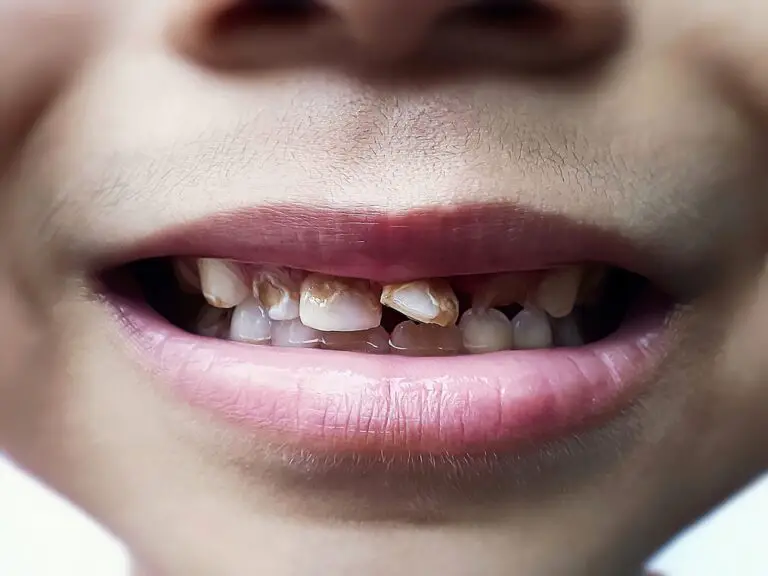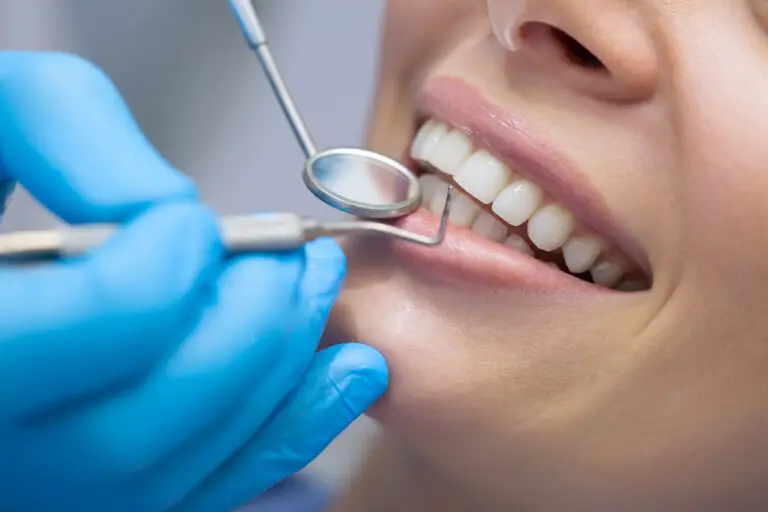Poor oral hygiene and not brushing teeth regularly can indeed lead to an increased risk of developing cardiovascular disease. The link between oral health and heart health may not seem obvious at first, but there are several ways that poor dental care can negatively impact the heart. Keep reading to learn more about how not brushing teeth could potentially cause heart problems.
The connection between oral health and cardiovascular disease
Inflammation
One of the main ways that poor oral hygiene affects heart health is through inflammation. Bacteria accumulates on and between teeth when you don’t brush regularly. This bacteria causes chronic inflammation in the body. Inflammation that starts in the mouth can spread via the bloodstream and trigger systemic inflammation that damages blood vessels and leads to the development of atherosclerosis.
Atherosclerosis is characterized by the buildup of plaque in the arteries. This accumulation of plaque narrows the arteries, making it easier for blood clots to form and raising the risk of heart attack or stroke. The chronic inflammation caused by bacteria from poor dental care facilitates atherosclerosis and makes cardiovascular events more likely.
Specifically, bacteria like Porphyromonas gingivalis and Streptococcus sanguis that are involved in periodontal disease have been found in atherosclerotic plaques. The inflammation signals stimulated by these bacteria promote increased adhesion of leukocytes and platelets to blood vessel walls as well as increased aggregation of platelets. This leads to the formation of blood clots which can break loose and cause heart attacks or strokes if they become lodged in arteries around the heart or brain.
Markers of inflammation such as C-reactive protein (CRP) and interleukin-6 (IL-6) are frequently elevated in people with periodontal disease. These inflammatory factors are also associated with greater risk of cardiovascular disease. Treating gum disease can help lower CRP levels and improve cardiovascular risk profiles.
Bacteria in the bloodstream
When you don’t brush and floss regularly, bacteria from your mouth can enter the bloodstream through tears or bleeding in your gums. This introduces more bacteria into the blood that can adhere to fatty plaques in the blood vessels and contribute to larger blockages. The more bacteria floating around in the circulatory system, the higher the potential for inflammation and serious cardiac complications.
For example, the oral bacteria Streptococcus mutans has been detected in heart valve and atherosclerotic plaque specimens. S. mutans helps form biofilms on these sites which protect the bacteria from antibiotics and the immune system. The biofilms enhance bacterial accumulation and infection of the endothelium. This likely worsens inflammation and plaque buildup.
Another bacterium called Porphyromonas gingivalis has been shown to promote platelet aggregation through the enzymatic modification of low-density lipoproteins into a form that activates platelets and increases the risk of clot formation. So the invasion of oral bacteria into the blood can directly make blood clots more likely.
Increased blood pressure
Neglecting oral hygiene has also been associated with high blood pressure. Bacteria from gum inflammation may interfere with nitric oxide signals, causing blood vessels to constrict rather than dilate. This raises blood pressure levels and forces the heart to work harder. Sustained high blood pressure can damage blood vessels, increasing the risk of heart attack and stroke over time.
For instance, the presence of certain periodontal bacteria has been linked to lower levels of nitric oxide in the saliva. Without adequate nitric oxide available to dilate blood vessels, hypertension is more likely. Treating gum disease has been found to reduce systolic blood pressure by around 3-4 mmHg on average, likely due to the resulting decreases in systemic inflammation and oral bacteria.
Increased blood sugar
Poor dental care frequently leads to gum disease. Some studies have found a correlation between gum disease and elevated blood sugar levels. When gums are chronically infected, the body may become less sensitive to insulin or the bacteria may alter sugar metabolism. High blood sugar levels make diabetes and heart disease worse. Controlling oral bacteria through brushing helps keep blood sugar at a healthier level.
Gum disease appears to negatively impact glycemic control in people with diabetes. Periodontal therapy provided some improvement in HbA1c levels over 3-4 months in multiple clinical trials. One study found over 6 months of periodontal treatment lowered HbA1c an average of 0.27%. Better blood sugar control reduces diabetes complications and cardiovascular risk.
Dental care habits that can affect heart health

To reduce your risk of developing cardiovascular disease, make sure you maintain the following oral hygiene habits:
- Brush teeth twice a day – Brushing after meals and before bed removes plaque that can cause tooth decay and gum inflammation. Use a soft-bristled toothbrush and fluoride toothpaste. Take your time to brush thoroughly for two minutes. Set a timer if needed. Replace your toothbrush every 3-4 months or sooner if the bristles appear frayed.
- Floss once a day – Flossing clears bacteria and food particles from between teeth and below the gumline where brushing can’t reach. Take the time to floss all your teeth. Use a gentle sawing motion and curve the floss around the base of each tooth.
- Get regular dental cleanings – Professional cleanings every six months remove built-up calculus that you can’t clear with daily home care. Cleanings allow the dentist to check for cavities or other issues. They use scalers to clean between the gumline and teeth down to the roots.
- Use antiseptic mouthwash – Mouthwash can reduce oral bacteria and gum inflammation between brushing. Pick a formula with antibacterial ingredients like cetylpyridinium chloride or essential oils. Swish the mouthwash vigorously around your mouth for at least 30 seconds.
- Don’t smoke – Smoking irritates gums and makes gum disease worse. The chemicals in tobacco smoke also increase the stickiness of plaque on teeth. Quit smoking to support both dental and cardiovascular health.
- Manage health conditions – Diabetes, high blood pressure, and high cholesterol should be well-controlled through medication, diet, and exercise. Reducing inflammation from these diseases also helps reduce oral inflammation.
- Eat a heart-healthy diet – A diet focused on fruits, vegetables, whole grains, beans, fish, nuts, seeds, and healthy oils provides nutrients for protecting oral and cardiovascular health. Limit sugar and refined carbohydrates.
- Drink water – Stay hydrated by drinking plenty of water each day. Drinking water after meals and snacks can help rinse away food particles and neutralize mouth acidity too.
Making dental care a priority and sticking to healthy brushing and flossing habits is key to lowering inflammation in the body, controlling bacteria, and reducing the eventual risk of developing heart problems. Don’t neglect your pearly whites – a healthy mouth helps maintain a healthy heart!
Common dental issues linked to cardiovascular disease

Below are some of the most common dental health problems that research has connected to an increased risk of cardiovascular disease.
Gum disease
Gum disease comes in two main stages – gingivitis and periodontitis. Gingivitis causes red, swollen gums that bleed easily. Periodontitis occurs when untreated gingivitis progresses and the gums pull away from the teeth creating pockets that become infected.
Both stages of gum disease introduce bacteria into the bloodstream and create systemic inflammation. Numerous studies have found gum disease to increase the risk of atherosclerosis, heart attack, and stroke. One study showed that men with gum disease had a 34% higher rate of coronary artery disease.
For instance, patients with periodontitis were found to have more than double the risk of recurrent cardiovascular events like heart attack, stroke, and cardiovascular death compared to those without periodontitis in one study. The bacteria involved in periodontal infections likely accelerate the development and worsening of atherosclerotic plaques.
Treating gum disease and maintaining diligent oral hygiene helps reduce cardiovascular risk factors. One study found that intensive periodontal treatment lowered blood pressure and cholesterol levels. Managing gum disease should be a priority for improving heart health.
Tooth loss
Losing teeth is often a consequence of severe gum disease. But missing teeth for any reason can impact cardiovascular health. People with fewer teeth tend to have poorer nutrition since chewing is more difficult. Diets higher in processed foods and refined carbohydrates are associated with greater heart disease risk.
Tooth loss also makes plaque removal more challenging. The remaining teeth drift and collect more plaque which leads to further gum inflammation. Proper cleaning is critical to help circumvent the links between tooth loss and heart disease. Dentures must be kept meticulously clean as well.
One study of over 15,000 adults found that those missing 10-19 teeth had a 26% increased risk of heart disease compared to those missing 0-9 teeth. The risk was even higher in those missing 20 or more teeth. Another study showed that for each tooth lost, cardiovascular disease risk may increase by 10%.
Dental caries
Dental caries (cavities) form through the acidic by-products of bacteria feeding on sugars and carbohydrates in the mouth. The bacteria then enter the bloodstream through infected cavities which allows them to stick to arterial plaques.
A Scottish study of over 11,000 adults found that those with the highest number of dental caries had a 13% greater risk of developing cardiovascular disease. Another study linked cavities in childhood to the early development of atherosclerosis in adulthood.
Cavities are entirely preventable through brushing, fluoride, dental sealants, and limiting sugary foods and drinks. Promptly treating any cavities that develop helps avoid further progression to a systemic infection. Regular dental visits allow cavities to be caught early.
Oral cancer
Oral cancer is most often associated with tobacco and heavy alcohol use. This cancer can affect any tissues of the mouth but frequently impacts the tongue and floor of the mouth. In its later stages, oral cancer has a high likelihood of spreading or metastasizing to other parts of the body.
The chronic inflammation caused by oral cancer also releases chemicals into the blood that makes platelets stickier and raises the risk of blood clots. Oral cancer provides an excessive inflammatory burden that taxes the immune system and harms cardiovascular health.
Early detection of precancerous changes through regular dental visits gives the best chance for successful treatment. Dentists also counsel patients to stop tobacco habits that lead to oral cancer in the first place. Any sores or changes in the mouth that last longer than 2 weeks require prompt evaluation.
How does brushing your teeth help your heart?

Given the strong links between oral bacteria, inflammation, and cardiovascular disease – the simple act of brushing your teeth can benefit your heart in multiple ways:
- Removes plaque that causes gum inflammation and cavities
- Reduces bacteria in the mouth that can enter the bloodstream
- Helps defend against gum disease which is related to heart disease
- Lowers blood pressure that may be elevated by oral bacteria
- Improves blood vessel function by decreasing inflammation
- Regulates blood sugar by resolving gum infections that can alter metabolism
- Allows early identification of oral cancer before it can spread
- Encourages dental visits to monitor changes and treat issues promptly
Research confirms that maintaining good oral hygiene through brushing and professional care significantly reduces the prevalence of cardiovascular disease. One study found that men who brushed less than once a day had a 70% increased risk of heart disease compared to men who brushed at least twice daily.
In patients with existing cardiovascular disease, intense oral hygiene practices such as using special toothbrushes, medicated rinses, and tongue scrapers may lower blood pressure and inflammation markers based on some studies. Ask your dentist about supplemental aids if you have heart issues.
Brushing and flossing to keep your mouth clean provides benefits well beyond preventing bad breath and tooth decay. A healthy mouth supports a healthy heart. Don’t neglect your oral care!
Frequently Asked Questions
1. How often should you brush your teeth to help your heart?
You should brush your teeth at least twice a day – after breakfast and before bed – to gain the most heart health benefits. Brushing thoroughly for 2 minutes each time helps remove the most plaque. Set a timer to ensure you brush long enough. Ideally, you should also brush after lunch or after sugary snacks. More frequent brushing provides better protection.
2. Does flossing help your heart like brushing does?
Yes, flossing is also important for your cardiovascular health. Flossing removes bacteria and food particles from between teeth and below the gumline where plaque likes to accumulate. Brushing your teeth cleans 60% of your tooth surfaces while flossing covers the remaining 40% that need plaque removal. Do both daily.
3. Can brushing reverse gum disease once you have it?
Unfortunately, once gum disease is established, the damage to connective tissues and bone loss cannot be reversed through brushing alone. However, excellent oral hygiene can help resolve gum infections and prevent further progression of the disease. Prompt professional treatment like deep cleanings and sometimes surgery is key to addressing any current gum damage.
4. How do dentists check for signs of heart disease during dental visits?
Dentists often review medical history and risk factors for heart disease during patient visits. They also examine the mouth closely for poor oral hygiene, bleeding gums, loose teeth, or other signs that may indicate cardiovascular issues. Some dentists can perform screening tests for vital signs, cholesterol levels, or markers of inflammation as well.
5. If you have heart disease, which dental precautions should you take?
People with heart disease need extra vigilance with oral hygiene to reduce bacteria and inflammation. Work closely with your dentist for any procedures and alert them to any heart medication you take or special considerations. Some may require antibiotics before dental work. Listen to any modifications your dentist advises for your regular dental routine too.
Conclusion
Poor oral health from not brushing or caring for your teeth properly allows harmful bacteria to thrive in your mouth. This bacteria can enter the bloodstream where it triggers systemic inflammation and damages blood vessels. The inflammation, high blood pressure, and disruptions to proper metabolic functions contribute to the development of atherosclerosis, heart attacks, strokes, and other cardiovascular events.
Practicing good oral hygiene through regular brushing, flossing, dental visits, and not smoking plays an important role in protecting your cardiovascular system and overall health. Don’t ignore your pearly whites – a clean mouth promotes a healthy heart! Be diligent about your daily dental care routine and see your dentist regularly to lower your risk of developing heart problems.







